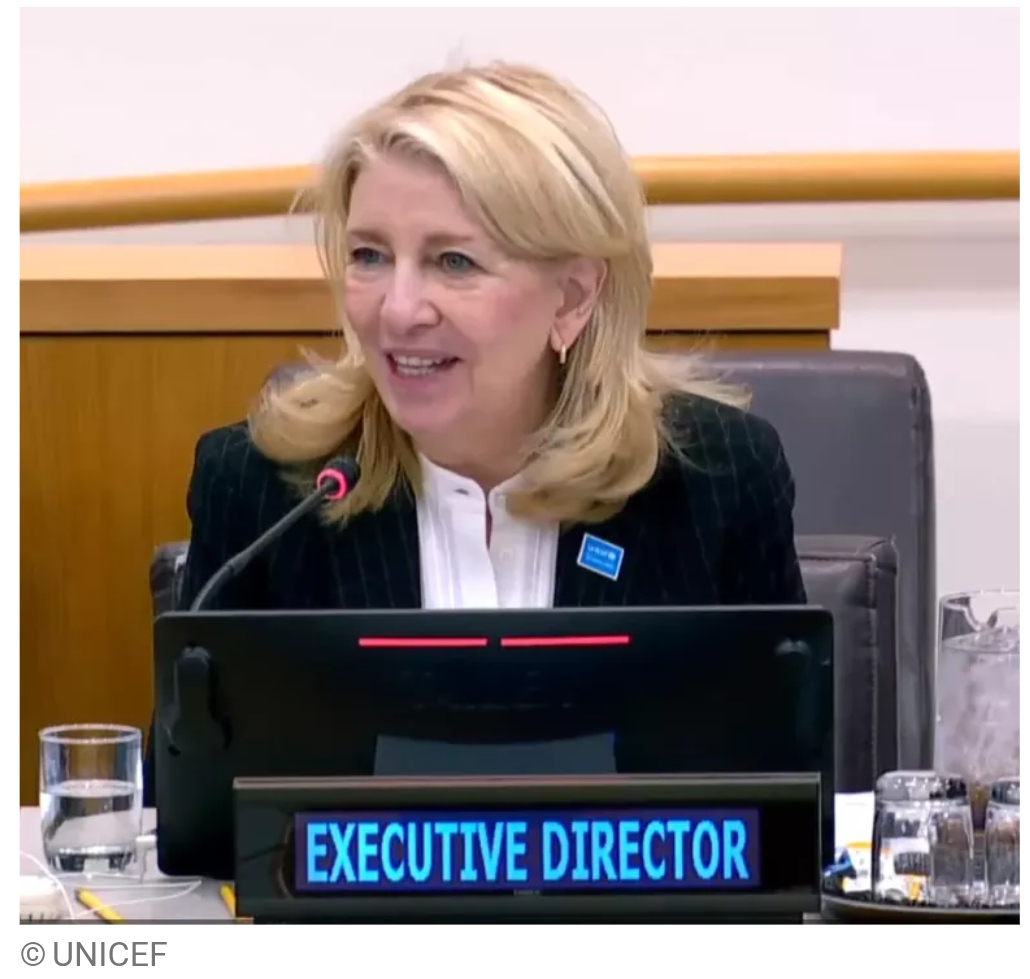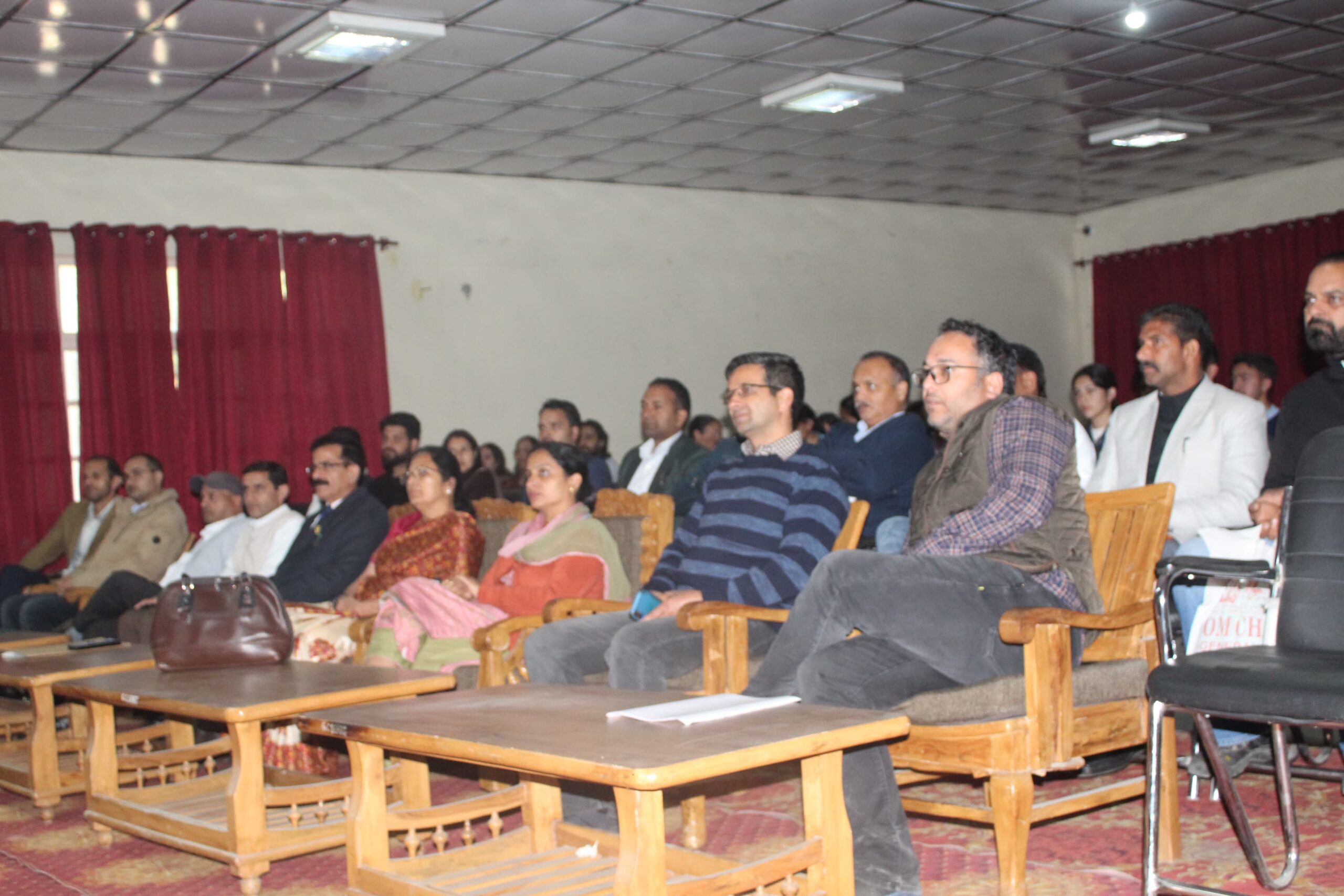UNICEF Executive Board Highlights 2025 Priorities Amid Global Challenges.
NEW YORK:
UNICEF’s Executive Director delivered a compelling address to the UNICEF Executive Board, focusing on the organization’s priorities for the year ahead, as well as the challenges it faces amid growing global instability.
The session opened with a warm congratulations to Ambassador Hikmat on his appointment as President of the UNICEF Executive Board, alongside the newly elected Bureau members. UNICEF’s Executive Director thanked the Board for their ongoing leadership, emphasizing the importance of their support in advancing the organization’s mission to protect children’s rights worldwide.
A central theme in the address was the ongoing global challenges, including political instability, economic uncertainty, and rising humanitarian crises. The Executive Director highlighted the increasing threats to children, such as conflicts, climate change, and deepening inequality, which make UNICEF’s work more critical than ever. “UNICEF is the bulwark against threats to children’s rights and their wellbeing,” they stated.
The Director also addressed the financial challenges that UNICEF anticipates in 2025, including reduced official development assistance (ODA) and resource mobilization difficulties. They confirmed that UNICEF is evaluating the impact of the United States’ 90-day funding pause and warned of possible cuts to ODA budgets in Europe. However, the organization is exploring innovative solutions such as partnerships with international financial institutions and multilateral development banks to ensure continued support for children.
In addition, UNICEF’s National Committees were praised for their critical role in generating private sector support, which now constitutes more than 50% of UNICEF’s regular resources. This funding is vital for rapid response in emergencies and flexible allocation of resources. The session also addressed UNICEF’s proactive approach to internal controls, emphasizing a zero-tolerance policy for corruption and fraud.
Looking forward, the Executive Director highlighted the development of UNICEF’s new Strategic Plan for 2026-2029, with a focus on addressing gaps in child-related Sustainable Development Goals (SDGs). The new plan will emphasize driving results through strategic focus, scaling proven programs, and advocating for multi-stakeholder engagement.
UNICEF is also prioritizing vulnerable groups, notably children with disabilities and adolescent girls. The ongoing efforts to implement UNICEF’s Disability Inclusion Policy and Strategy, launched in 2023, were praised for reaching more children with disabilities and providing them with essential services. Additionally, a renewed focus on gender equality, particularly through the rights of adolescent girls, was underscored, with the upcoming Gender Action Plan to be shared with the Board later this year.
Humanitarian action remains a cornerstone of UNICEF’s mission, particularly as the number of children in need of assistance continues to rise. UNICEF estimates that in 2025, more than 213 million children will require humanitarian aid. The Executive Director noted that over the last year, UNICEF has seen significant challenges in reaching children in conflict zones, with a growing proportion of the world’s children now living in such areas.
A critical area of concern is the allocation of humanitarian funding, with nearly 50% of resources in 2024 being directed to just five crises, due to earmarked contributions. The Director called for a shift toward more flexible and equitable funding to ensure that all children, regardless of location, receive the support they are entitled to under international law.
As the session concluded, UNICEF’s staff and partners working in hardship duty stations were recognized for their unwavering commitment to reaching the most vulnerable children worldwide. The Executive Director expressed deep gratitude for their efforts and reiterated UNICEF’s commitment to creating a world where every child has the opportunity to thrive.
This session set the tone for UNICEF’s ambitious agenda for 2025, reaffirming the organization’s dedication to addressing the world’s most pressing challenges in pursuit of children’s rights.




